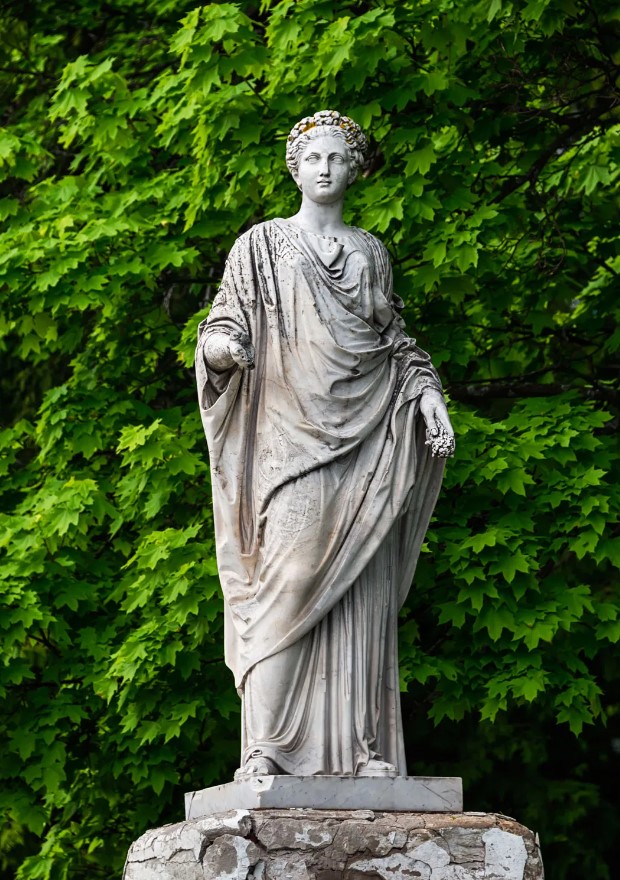In the rich tapestry of Greek mythology, the goddess Demeter occupies a central and revered role as the embodiment of the earth’s bounty and fertility. Revered as the goddess of agriculture, grain, and harvest, Demeter’s influence extends far beyond the fields and farms, touching upon themes of motherhood, loss, and renewal. In this article, we delve into the myths and symbolism surrounding Demeter to illuminate the timeless significance of this nurturing deity.
Demeter is often depicted as a serene and maternal figure, adorned with a crown of wheat and bearing sheaves of grain in her arms. As the goddess of agriculture, she oversees the cycle of planting, growth, and harvest, ensuring the abundance of the earth’s bounty and the sustenance of humanity. Her name, derived from the Greek word “de,” meaning earth, reflects her close association with the natural world and the cycles of life and death.
One of the most famous myths associated with Demeter is the story of her daughter, Persephone, who was abducted by Hades, the god of the underworld. In her grief and despair, Demeter withdrew her blessings from the earth, causing crops to wither and die and plunging the world into darkness and famine. This myth, known as the Eleusinian Mysteries, serves as a metaphor for the cycle of the seasons, with Persephone’s descent into the underworld symbolizing the barrenness of winter and her return to the earth heralding the arrival of spring.
Beyond her role as a goddess of agriculture, Demeter is also revered as a protective and nurturing mother figure. Her maternal love for Persephone is a central theme in many myths, underscoring the depth of her devotion and the lengths to which she will go to protect her daughter. In her grief over Persephone’s abduction, Demeter roamed the earth in search of her lost daughter, neglecting her duties as a goddess and causing widespread devastation in her wake. This myth speaks to the universal themes of maternal love, sacrifice, and the anguish of separation.
Moreover, Demeter is associated with the Eleusinian Mysteries, ancient religious rites that were celebrated in her honor and offered devotees hope of immortality and rebirth. These mysteries, shrouded in secrecy and mysticism, were central to the religious life of ancient Greece and served as a means of connecting with the divine and seeking solace in the face of life’s uncertainties.
Demeter occupies a central and revered role in Greek mythology as the nurturing mother goddess of agriculture and fertility. Through her association with the earth’s bounty, the cycle of the seasons, and the maternal love for her daughter Persephone, Demeter embodies timeless themes of growth, renewal, and the enduring power of the natural world. As a symbol of maternal love and protection, Demeter continues to inspire and resonate with audiences today, reminding us of the interconnectedness of all living things and the importance of nurturing and safeguarding the earth’s precious resources.






